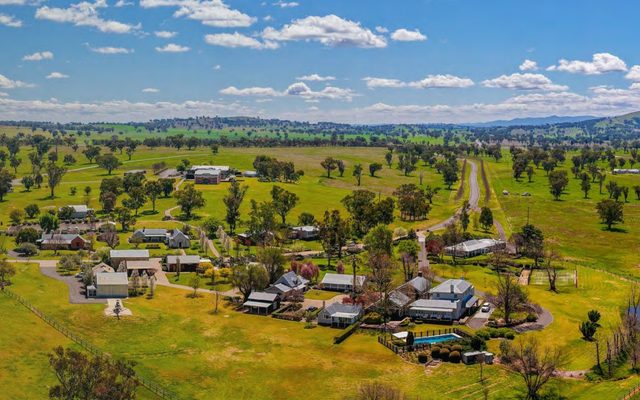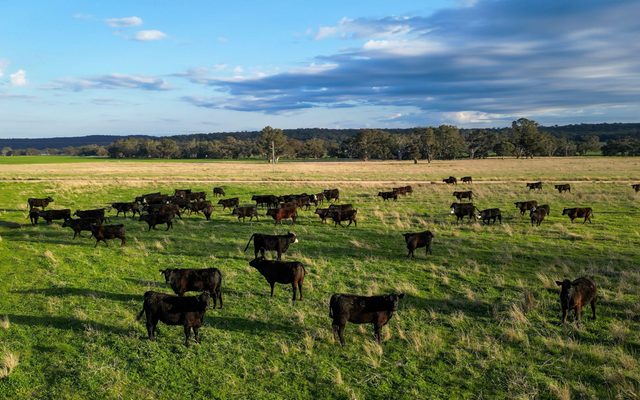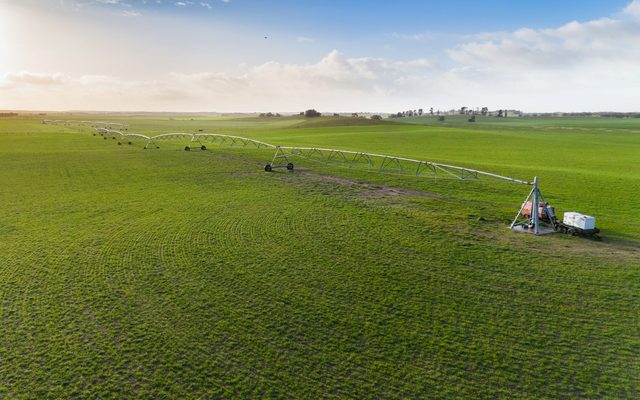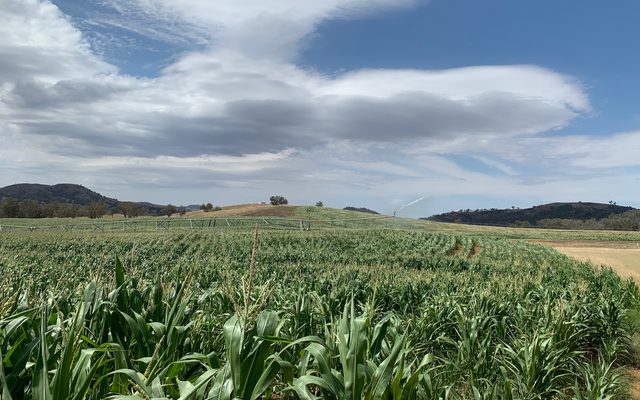This article is from the Australian Property Journal archive
LARGE-scale institutional investors and corporate farming families are tipped to compete for the United Kingdom-based Swire family’s 5,003-hectare New England grazing property Wirribilla, as foreign investors continue their active run on the buy and sell sides of Australian agribusiness real estate.
The property has a carrying capacity of 73,000 dry sheep equivalents and is currently running both a self-replacing Primeline composite sheep flock producing prime lambs, and an Angus cow herd with progeny finished to heavy feeder weights.
Trade cattle also graze on excess feed in a combination of long-term backgrounding agreements and on capital account.
Selling agency LAWD told Australian Property Journal that the market is expected to see value over $70 million.
Wirribilla was considered a triple-A property when purchased by the Swire Group’s Clyde Agriculture in 2004. The company subsequently sold its agriculture assets across northern NSW and Queensland, with Wirribilla being purchased independently by the current owner, Sam Swire in 2013.
The Swire family’s involvement with Australian agricultural assets extends back to the early 1960s with Johns Swire & Sons’ investment in a Northern Territory beef processing business.
Wirribilla features perennial grass and clover pastures, supported by an annual rainfall of 900 millimetres It has been managed with a strategic fertiliser strategy with long-term soil test data demonstrating phosphorus levels well above 40mg/kg across most of the holding.
LAWD’s Col Medway said Wirribilla presented an opportunity to invest in a high-capacity operation benefitted by consistent rainfall and a long and targeted capital expenditure program.
“Under the current ownership extensive investment has been made in pasture improvement, fencing and laneways, water systems and infrastructure,” Medway said.
“There is an existing management team of five staff in place who are young and energetic and the successful purchaser will also have the option to buy plant, machinery and livestock.
Greg Hughes, a former director of Clyde Agriculture and Swire in Australia and now a director of Wirribilla Farms Pty Ltd, noted that the London businessman had wanted to maintain his interest in Wirribilla and in the Australian agriculture sector.
“Sam wanted to maintain his association with Australian agriculture and his investment in Wirribilla meant that the property continued to benefit from the same levels of investment and improvements that it enjoyed under Clyde Agriculture’s ownership,” Hughes said.
“This is evident in the manner in which the property presents itself, and the fact that Wirribilla has been managed by the same manager for almost 20 years provides real continuity and gives great confidence in the production data provided.”
Wirribilla also includes a chalet-style homestead and plentiful staff accommodation.
Swire becomes the latest in a line of offshore investors looking to sell major Australian agribusiness real estate, and comes hot on the heels of Filipino business identity and property developer Romeo Roxas roping in in more than $40 million from the sale of his 559,500-hectare Northern Territory cattle station Murray Down.
Chinese company Hailiang Group put up for grabs southern Queensland’s Hollymount and Mt Driven aggregation, which it acquired nine years ago for $41 million, while US private equity firm Proterra Investment Partners’ listing its One Tree broadacre cropping portfolio with hopes of around $250 million.
In August, the Washington State Investment Board-backed Laguna Bay lobbed Border Rivers region dryland cropping Carpendale aggregation to the market with hopes of more than $90 million.
Foreign investors have also been on the buy-side of recent major transactions.
Canada’s Alberta Investment Management Corporation entered into an agreement to acquire the sprawling northern Western Australian Yeeda Aggregation, and NASDAQ-listed Agriculture & Natural Solutions Acquisition Corporation nabbed Australian Food and Agriculture, taking on its 225,000-hectare portfolio of NSW assets that include the birthplace of Merino sheep in a mammoth $780 million deal.






